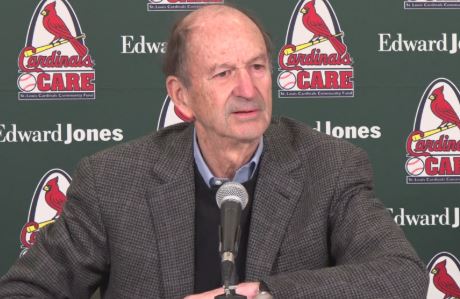
St. Louis Cardinals broadcaster Chip Caray recently found himself at the center of controversy after mistakenly uttering a homophobic slur during a live broadcast. While reading a scripted promotional message for Disability Pride Night, Caray intended to say the word “flag,” but instead said the offensive term “f*g” on air. The incident occurred without immediate correction or explanation, followed by an uncomfortable 31 seconds of silence, which only heightened the tension and left viewers stunned.
Caray, a veteran sportscaster and part of a well-known broadcasting family, has not yet issued a public apology or statement addressing the incident. The Cardinals confirmed that the slip was unintentional, and no disciplinary action has been announced. Despite the claim that it was a simple mistake, many fans and critics have questioned how such an error could occur, especially given Caray’s decades of professional experience behind the microphone.
The timing and tone of the mistake have raised eyebrows within the LGBTQ+ community and among media observers. Some believe it reflects deeper issues of cultural insensitivity or unconscious bias, while others argue that the broadcaster deserves the benefit of the doubt. Still, many are calling for a formal response—either from Caray or the Cardinals—to provide clarity and accountability in an age where public language and inclusion are under intense scrutiny.
This incident is not the first time the Cardinals organization has faced criticism related to LGBTQ+ issues. In previous years, the team has been accused of aligning with anti-LGBTQ+ speakers during themed events such as “Christian Day,” which has left a lingering concern about the team’s stance on inclusivity. For many, Caray’s silence only reinforces the perception that meaningful dialogue on these issues is still being avoided.

Ultimately, the incident underscores the importance of mindful communication, especially during broadcasts tied to diversity and inclusion. Whether the slip was a genuine mistake or something more troubling, it’s clear that transparency and acknowledgment are crucial steps in rebuilding trust. Until then, fans and advocates are left waiting—and listening—for a response that matches the gravity of the moment.






